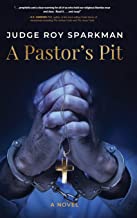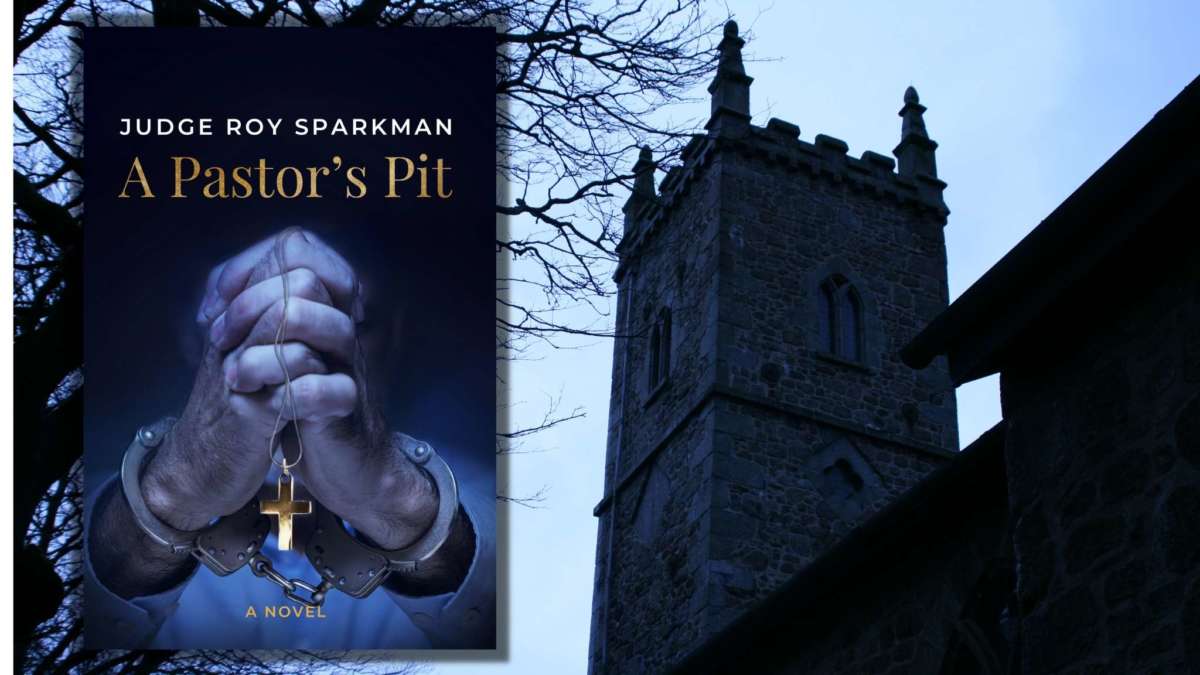A Pastor's Pit by Judge Roy Sparkman
“Speech that is intended to insult, intimidate or cause prejudice against a person or people based upon their race, gender, age, sexual orientation, religion, political affiliation, occupation, disability or physical appearance.” That’s the definition of hate speech, at its most comprehensive.
But was Pastor Preston Curtis guilty of it when his sermons pointed to teachings in the Bible that Jesus is the only way to Heaven and that people of all other religions, citing Muslims for instance, are going to Hell?
It’s the hot potato that Judge Roy Sparkman dissects masterfully in his debut novel A Pastor’s Pit (Koehler Books). It starts when Pastor Curtis gets an anonymous call that he is about to be indicted for religious hate speech by the local District Attorney in his Oregon community in a criminal action lawsuit. The pastor’s initial reaction is disbelief; surely, this must be a prank.
If only it was.
A PASTOR’S CONTROVERSIAL REMARKS
There’s a lot to unpack in this stimulating work. First and foremost is whether Curtis is protected by federal law for anything he says from the pulpit to his congregation. And is the Bible a sufficient and acceptable enough source to reference in a religious setting without repercussions?
Sparkman paints a picture of a loving, caring, respected pillar of his community suddenly thrust into the position of lightning rod, with factions split on his innocence or guilt, right up to his own congregation and the church elders.
In that Curtis mentioned them as a non-Jesus-believing group who was destined for Hell, Muslims feel they are the most persecuted by Curtis’ remarks. The controversy extends to the local school, where Muslims are granted space to meet by the school principal (on the grounds that they are a political group and not a religious one) while Christians are not.
The controversy over the sermons creates chaos. Both Muslim and Christian children report being bullied at school and feeling that they are not safe. Also, the church gets an abundance of negative phone calls each day, the janitors need to constantly clean up hate graffiti, and church attendance is down 20 percent.
Offered some easy ways out of his dilemma (avoiding a potential prison sentence and the possibility of his children being taken away) if he were willing to temper his beliefs and be more selective about the words he uses and doesn’t use, Curtis stays true to his convictions, considers God his only judge and jury, and refuses to compromise.
A DYNAMIC CAST OF CHARACTERS
Sparkman presents a wonderful cast, including the pastor’s family; his old friend, RT, an attorney who agrees to represent him; DA Ryan; Elder Chairman Martin, and school principal Turner, to name a few. With battle lines drawn, the author also offers intrigue by introducing some characters whose actions go behind the backs of their constituents — so reader, be warned!
The issue goes way beyond the very profound impact on the pastor and his family, all the way up to a fictitious Supreme Court for which Sparkman recreates the personalities.
“The foundation of the book,” says Sparkman, “began years ago when, as an attorney, I was called upon to defend my pastor in a deposition and subsequently a court hearing because of a sermon he preached. The topic of religious liberty has grown in importance to me as I now have a son and daughter in ministry and have seen some politicians use Covid-19 as an excuse to demonstrate hostility to religious worship — of all faiths.”
Is the religious liberty upon which this nation was formed slipping away? For an intelligent, compelling, thought-provoking examination of the topic, I strongly urge you to pick up A Pastor’s Pit — it’s wonderful storytelling, but also so much more.
RELATED POSTS
A Dead Rabbi and His Contentious Congregation in “Two Jews = Three Shuls”
Audio Mysteries and the Power of Houses of Worship




